The Charioteer (53 page)
Authors: Mary Renault
Laurie did not begin to think immediately. He was, though now he had forgotten this, very tired. He wondered stupidly for a few moments where Ralph meant to go, and remembered that if he went anywhere at an hour’s notice, it would be as a deserter. The picture of Ralph on the run had a disturbingly wrong shape. Laurie turned to the letter again; but, after all, he didn’t read it. He was not halfway through the first paragraph when he placed the little smell that hung about the table. It belonged to the training depot and the first months of war. As he bent down it got stronger; he saw the cleaning rag soaked in gun-oil at the bottom of the wastepaper basket.
No, he said stupidly; and while his mind was still inert with refusal, he heard the sound of the radio flow out through the opened door downstairs, and Ralph’s voice in the hall.
When one checks a fall one is sometimes aware of the whole complex process as if it were the result of thought. Laurie pushed the letter back into the envelope, licked the gum again, and with swift accuracy stuck it down. He put it on the table exactly where he had found it, resisting his impulse to hide it under the others; crossed the room, and stood leaning on the mantelshelf looking into the fire. Now he noticed that Ralph had been burning papers, and a book of some kind. A yellow flame was licking through a fissure in the black paper, like a tongue between thin lips.
Some final exchange was going on between Ralph and the landlady in the hall. He heard Ralph’s voice, on a note of conventional thanks and apology for giving trouble, moving toward the stairs as he made his escape. It sounded pleasant and easy. Laurie thought that if he had heard it when he first arrived, he would at once have said to himself, “Thank God, everything’s all right.”
He stood beside the hearth, his arm on the high, empty mantelshelf, waiting, and now Ralph was at the door. He had something in his hand, a little strip of postage stamps. Laurie remembered then that the letters on the table had had no stamps on them. Ralph stood quite still on the threshold for a couple of seconds, then came in and shut the door.
Laurie still didn’t know what to say, but now it didn’t matter. Instinct told him it was better to wait, not to make speeches. So he only said, “I had to come.”
As soon as Ralph was in the room Laurie saw his eyes flick over to the writing-table, where the letters stood beside the telephone. Reassurance seemed to bring him to a standstill. Then he said, abruptly, “Did you try to ring me up, about half-past six?”
“Yes,” said Laurie, “but I couldn’t get through.” He spoke with naturalness and conviction. Indeed, he scarcely knew that he was lying. He felt he was expressing something truer than the facts.
As he said it, he, too, turned to the writing-table. But he was looking at the telephone. Now he realized why he had not noticed it before. There had been nothing to notice. The receiver wasn’t off the hooks now. Some time after six-thirty, Ralph must have put it back.
Laurie was unaware, at the time, of doing much more than note this as a material fact. If he had rung later he could have got through; that was all. Ralph’s face was bruised on the left cheekbone; it looked rather drawn and sunken, as if he had been ill, but it was set now and gave very little away. What Laurie felt seemed to have its origin only in himself. He wanted it so. Knowledge was cruelty. The moment he had used it, he threw away the discovery he had made, that he had waited at the door of a house without defenses.
He had not thought of this. He had come to take his punishment and, his penance begun, to leave as he had come, alone. That was to have been the beginning. But that was in another country. “Something was wrong with the line,” he said.
Ralph didn’t move forward. His eyes were dragged down at the corners, as if with lack of sleep; he contracted them strainingly. Behind them, like an almost exhausted runner, his pride seemed to pause, to sway and balance. “What did you ring for?” he said. “I suppose you found out?”
Remorse, even the greatest, has the nature of a debt; if we could only clear the books, we feel that we should be free. But a deep compassion has the nature of love, which keeps no balance sheet; we are no longer our own. So in the presence of this helpless forgiveness, Laurie seemed to himself to be doing only what was nearest in the absence of time to think. There was something here to be done which no one else could do. All the rest would have to be thought about later. He looked Ralph straight in the eyes, believing what he said.
“Afterwards. Alec told me. But I should have come, anyway. I should have had to come back.”
Quietly, as night shuts down the uncertain prospect of the road ahead, the wheels sink to stillness in the dust of the halting place, and the reins drop from the driver’s loosened hands. Staying each his hunger on what pasture the place affords them, neither the white horse nor the black reproaches his fellow for drawing their master out of the way. They are far, both of them, from home, and lonely, and lengthened by their strife the way has been hard. Now their heads droop side by side till their long manes mingle; and when the voice of the charioteer falls silent they are reconciled for a night in sleep.
Mary Renault (1905–1983) was an English writer best known for her historical novels on the life of Alexander the Great:
Fire from Heaven
(1969),
The Persian Boy
(1972), and
Funeral Games
(1981).
Born Eileen Mary Challans into a middle-class family in a London suburb, Renault enjoyed reading from a young age. Initially obsessed with cowboy stories, she became interested in Greek philosophy when she found Plato’s works in her school library. Her fascination with Greek philosophy led her to St Hugh’s College, Oxford, where one of her tutors was J. R. R. Tolkien. Renault went on to earn her BA in English in 1928.
Renault began training as a nurse in 1933. It was at this time that she met the woman that would become her life partner, fellow nurse Julie Mullard. Renault also began writing, and published her first novel,
Purposes of Love
(titled
Promise of Love
in its American edition), in 1939. Inspired by her occupation, her first works were hospital romances. Renault continued writing as she treated Dunkirk evacuees at the Winford Emergency Hospital in Bristol and later as she worked in a brain surgery ward at the Radcliffe Infirmary.
In 1947, Renault received her first major award: Her novel
Return to Night
(1946) won an MGM prize. With the $150,000 of award money, she and Mullard moved to South Africa, never to return to England again. Renault revived her love of ancient Greek history and began to write her novels of Greece, including
The Last of the Wine
(1956) and
The Charioteer
(1953), which is still considered the first British novel that includes unconcealed homosexual love.
Renault’s in-depth depictions of Greece led many readers to believe she had spent a great deal of time there, but during her lifetime, she actually only visited the Aegean twice. Following
The Last of the Wine
and inspired by a replica of a Cretan fresco at a British museum, Renault wrote
The King Must Die
(1958) and its sequel,
The Bull from the Sea
(1962).
The democratic ideals of ancient Greece encouraged Renault to join the Black Sash, a women’s movement that fought against apartheid in South Africa. Renault was also heavily involved in the literary community, where she believed all people should be afforded equal standard and opportunity, and was the honorary chair of the Cape Town branch of PEN, the international writers’ organization.
Renault passed away in Cape Town on December 13, 1983.
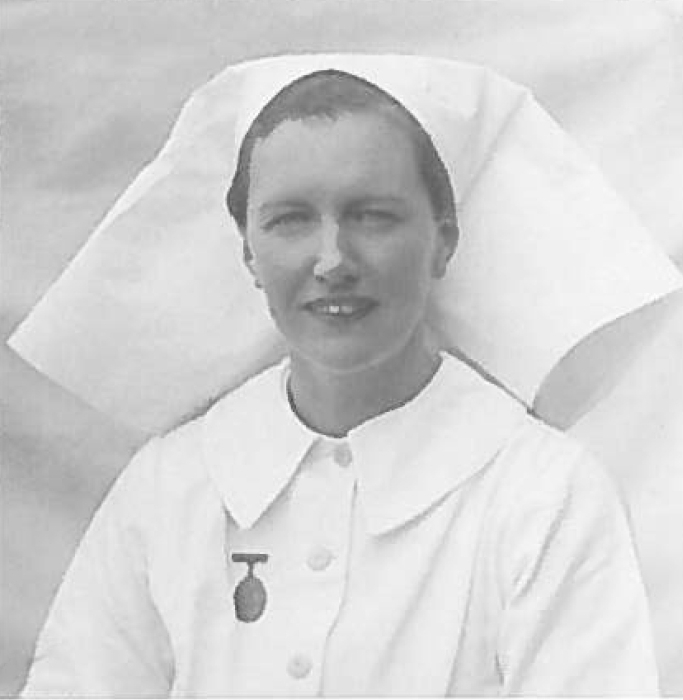
Renault in 1940.
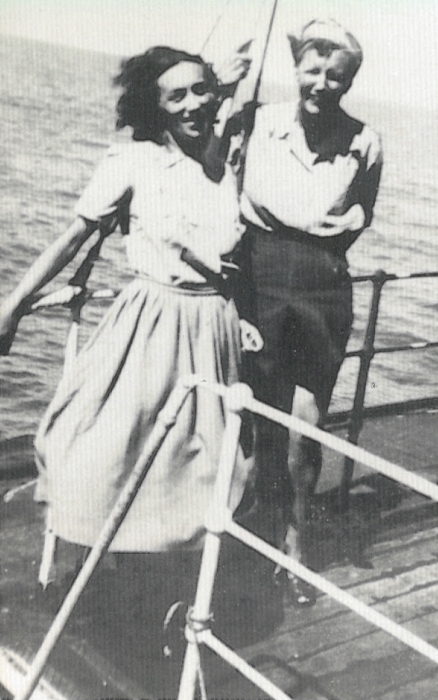
Renault and Julie Mullard on board the
Cairo
in 1948, on their way to South Africa, where they settled in Durban.
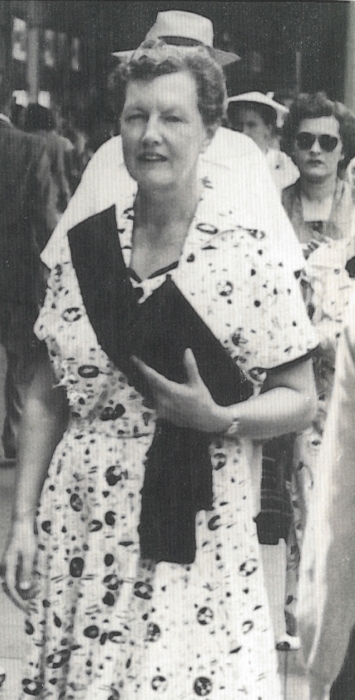
Renault in a Black Sash protest in 1955. She was among the first to join this women’s movement against apartheid.
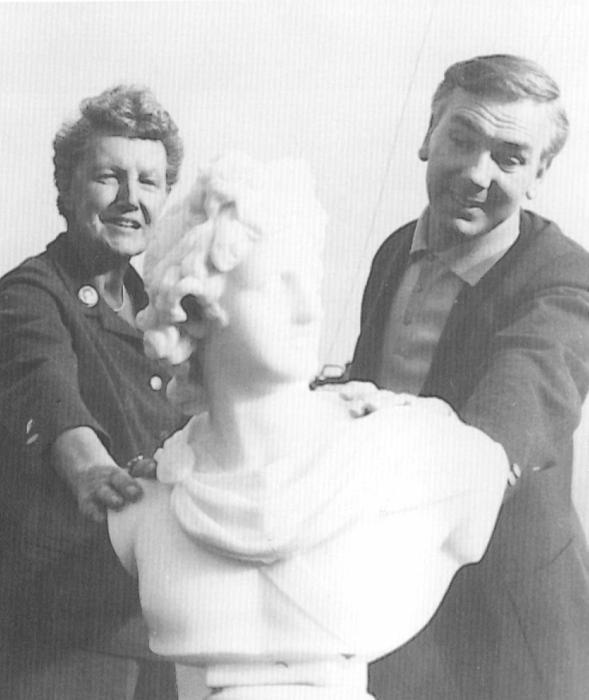
Renault and Michael Atkinson installing her cast of the Roman statue of the Apollo Belvedere in the garden of Delos, Camps Bay, in the late 1970s.
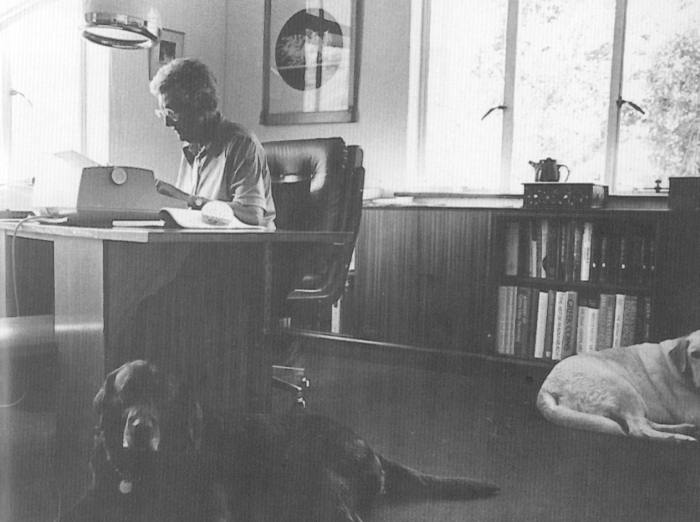
Renault working in her “Swiss Bank” study with Mandy and Coco, the dogs.
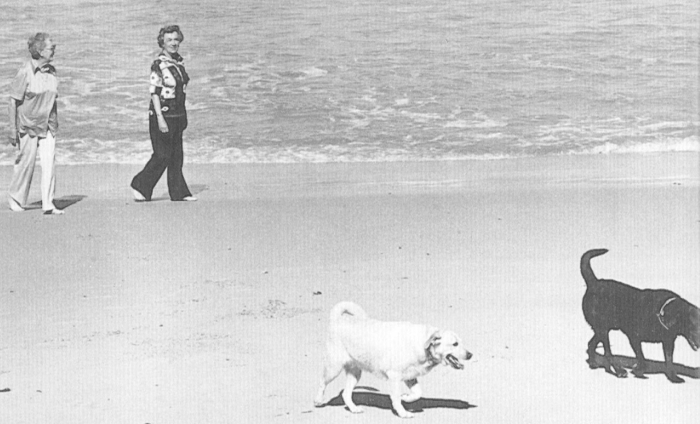
Renault and Mullard walking the dogs on the beach at Camps Bay in 1982.